Intermediate Glaucoma

Advanced Glaucoma

OCS-05: potentially the first
neuroprotective treatment for glaucoma
What is Glaucoma?
Glaucoma is a group of eye conditions that damage the optic nerve, the health of which is vital for good vision.
This damage is often caused by an abnormally high pressure in the eye.
Glaucoma is one of the leading causes of blindness for people over the age of 60. It can occur at any age but is more common in older adults.
Many forms of glaucoma have no warning signs. The effect is gradual those affected may not notice a change in vision until the condition is at an advanced stage.
https://www.mayoclinic.org/diseases-conditions/glaucoma/symptoms-causes
How is Glaucoma treated?
The damage caused by glaucoma can’t be reversed. But treatment and regular checkups can help slow or prevent vision loss, especially if the disease is caught in its early stages. Currently, the treatment approach for Glaucoma is focused on lowering eye pressure (intraocular pressure), a risk factor for glaucoma. Depending on the situation, treatment options may include prescription eyedrops, oral medications, laser treatment, surgery or a combination of any of these.
Eyedrops
Glaucoma treatment often starts with prescription eyedrops. These can help decrease eye pressure by improving how fluid drains from the eye or by decreasing the amount of fluid the eye makes. Depending on how low ones eye pressure needs to be, more than one of the eyedrops below may need to be prescribed.
Oral medications
If eyedrops alone don’t bring eye pressure down to the desired level, a doctor may also prescribe an oral medication, usually a carbonic anhydrase inhibitor. Possible side effects include frequent urination, tingling in the fingers and toes, depression, stomach upset, and kidney stones.
Surgery and other therapies
Other treatment options include laser therapy and various surgical procedures. These techniques are intended to improve the drainage of fluid within the eye, thereby lowering pressure.
https://www.mayoclinic.org/diseases-conditions/glaucoma/diagnosis-treatment
OCS-05: The Potential for Neuroprotection in Glaucoma and Other Neurodegenerative Eye Diseases
Although different treatments exist for glaucoma, all of them are focusing on reducing intraocular pressure and no treatment is currently available to address the damages to the optic nerve.
OCS-05 is a first-in-class peptidomimetic small molecule with neuroprotective activity that has shown positive results in animal models of neuroinflammation and neurodegeneration. Its mechanism of action is related to the activation of trophic factor pathways such as IGF-1 and BDNF. In ophthalmology, this action can protect the nerve axons in conditions where the optic nerve is affected such as in glaucoma and other neurodegenerative eye diseases including acute optic neuritis, and geographic atrophy.
Based on positive preclinical data and results of a phase 1 safety and PK study in healthy volunteers, a phase 2a study was initiated (the ACUITY study) which is currently ongoing in Europe.
ACUITY is a randomized, double-blind, placebo-controlled study to evaluate the safety and tolerability of OCS-05 compared to placebo in patients with acute optic neuritis. In addition to safety, secondary outcome measures will include optic nerve anatomical measures and visual function measures.
Glaucoma Illustration


